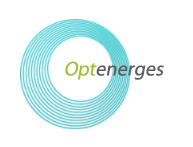Context
Agricultural sector has to, as the other sectors of activity, improve the efficiency of energy utilization. Indeed, different studies highlight the variability existing in term of energy consumption level, between farming systems within a given type, a given technico-economic orientation. This underlines the existing progress margin.This energy consumption problem can not be decoupled from the greenhouse gases (GHG) emission one.Indeed, if the development of des-intensified livestock farming systems based on grass valorisation allows to reduce energy consumption and so of CO2 emissions, together with a reduction of nitrate leaching risks, it can lead to an increase of GHG emission as ruminants feed with roughage forage, with a higher fibre content, produce more methane.Objectives
The overall objective of this project is to characterise the agricultural sector of the Wallonie-Lorraine-Luxembourg area from the point of view of its energetic performances, on one side, and of its GHG emissions, on the other side. This is coupled to the description of the diversity of the technical itineraries mobilised in order to identify the best itineraries to promote by the advisory services and to improve the agricultural sector sustainability on Wallonie-Lorraine-Luxembourg territory where this sector of activity plays a key role.In order to reach this target the project’s partners will mobilise and share a common methodology to evaluate, follow and improve the environmental impact of the farming practices in terms of CO2 and GHG emissions toward the atmosphere.Expected results
1) An evaluation of the different methodologies allowing the determination of energy and GHG balances, at the farm and at the product scale, by a panel of experts, will allow to define a common and shared methodology, easy to apply by the advisory services on the whole study area.
2) A typology of the farming systems found on the Wallonie-Lorraine-Luxembourg region will be based on the knowledge of the farming systems by the advisory services and of the available data describing them (agricultural statistic services, accountability services, …). The main farm types identified will be described. Some pilot farms will then be selected among these main types to set a reference network to validate the proposed tools and the technical alternatives allowing to improve farm energy and GHG emissions balances.
3) An evaluation of the impact of technical itinerary modification on the performances of the identified types. For that the operating cycle of the main types, representative of the greater diversity of situations on the whole territory of study, will be modelled. The objective of this model will be to take into account the variables that have an impact on these environmental externalities while being easily quantified in order to obtain a decision support tool. The latter can be quickly and easily applied on a farm by the advisory services. It will allow to define, in collaboration with the farmer, alternative itineraries to reduce energy and GHG balances while maintaining economical performances of his system.
4) Based on farms typology and on the externalities quantified in the main types identified, the contribution of the agricultural sector to energy consumption and GHG emissions in the Wallonie-Lorraine-Luxembourg area, contribution per se or proportionally to other sectors of activity, will be simulated.Such a simulation will allow highlighting stakeholders on the articulation existing between agricultural sector and the territory of interest.
Contribution
CRA-W is responsible of the coordination of the different scientific actions on the belgian side.Partners
Administrative coordination :- Centre de gestion du SPIGVA-Lux (B).
Scientific coordination :
- Centre wallon de Recherches agronomiques (B).
Partners :
- CONVIS (L).
- Institut de L’élevage (F).
- Chambre d’Agriculture de Meurthe et Moselle (F).
- Chambre d’Agriculture des Vosges (F).
- Chambre d’Agriculture de la Meuse (F).
- Chambre d’Agriculture de la Moselle (F).
CRAW off coordinator
Ir. RABIER Fabienne
CRA-W
Département Productions et Filières
Unité Machinisme et infrastructures agricoles
Chaussée de Namur, 146
B-5300 Gembloux
Tel : ++32 (0)81 62 71 40
Fax : ++32 (0)81 61 58 47
E-mail : rabier@cra.wallonie.be
Funding
- CE - Regional politics - INTERREG IV
- DGARNE






